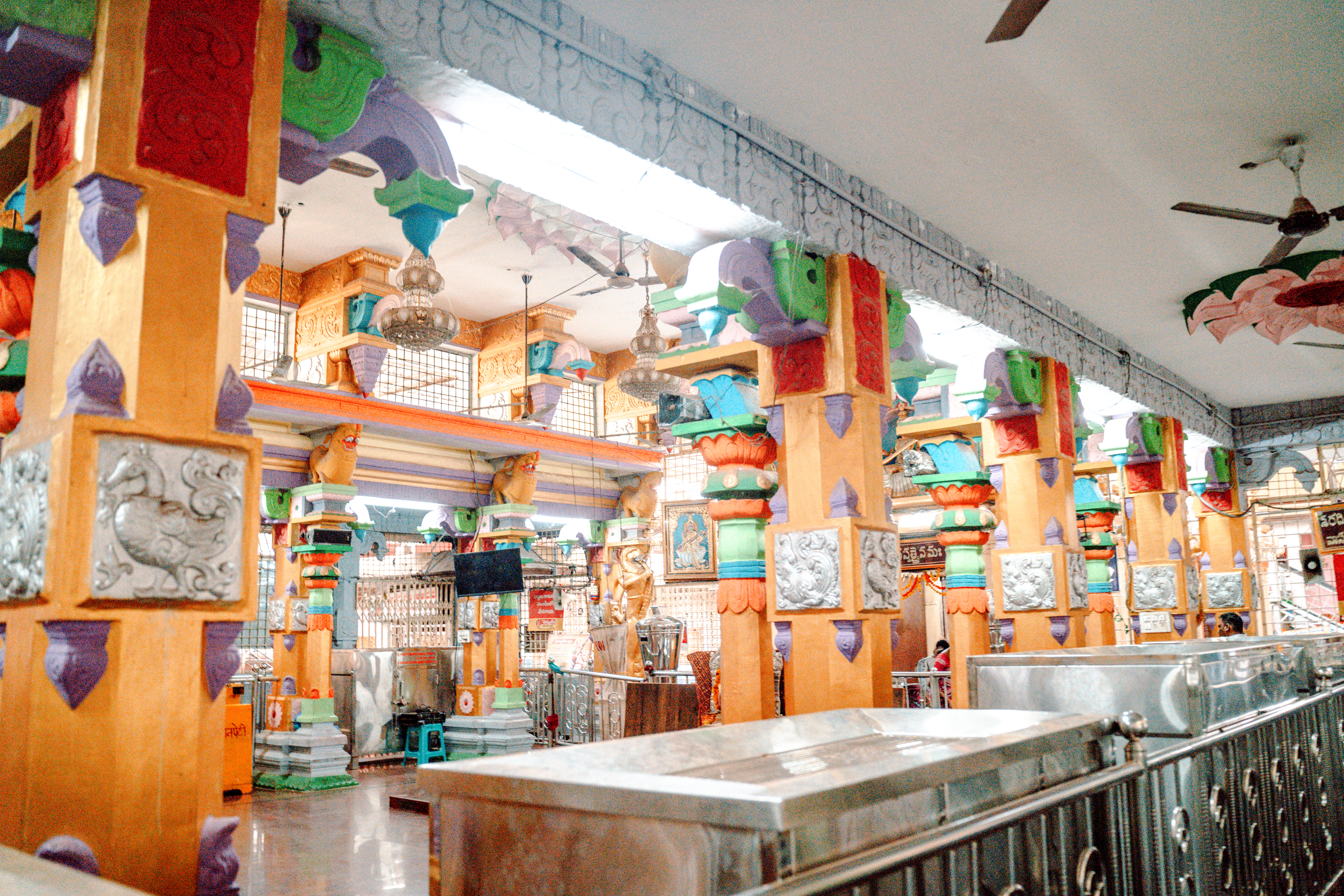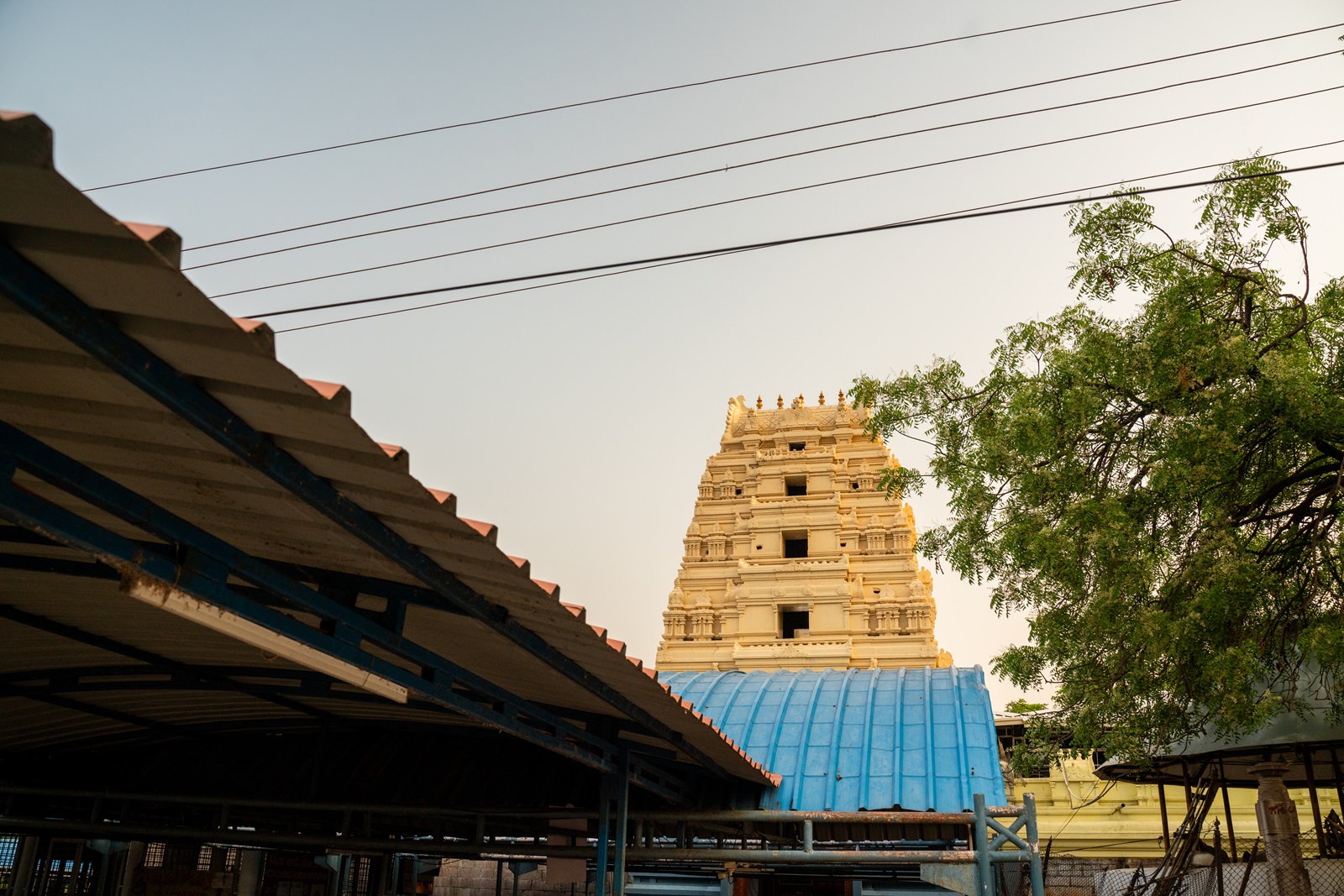Basara's temple has a rich history intertwined with legend. After the Kurukshetra War, Maharshi Veda Vyasa, the author of the Mahabharata, sought a serene place for meditation. He traveled to Dandakaranya forest and chose the tranquil banks of the Godavari River. During his penance, Vyasa had a vision where the goddess instructed him to bring three handfuls of sand from the river each day and form three heaps in a cave. These heaps transformed into the deities Maha Saraswathi, Maha Lakshmi, and Mahakali. Following this vision, Vyasa consecrated the idols of these goddesses. The place, originally called "Vyasapuri," evolved into "Vasara" and later "Basara" due to local language influences. This transformation reflects the profound spiritual and cultural significance of the site over time. During the 11th to 18th centuries, the temple faced attacks from Mughal Nawabs such as Hanid Shahi, Qutb Shahi, and Barid Shahi. A young man named Sri Makkaji Patel, along with a group of young men from nearby villages, defended the temple from these invasions. Nearby, there is a cave where the devout Narahari Maluka is believed to have performed penance. This place also houses a four-sided monolith rock known as "Vedavathi," which emits distinct sounds upon striking. The temple complex includes a sacred water tank, or 'Koneru,' with eight theerthas (wells) named Indra Teertha, Surya Teertha, Vyasa Teertha, Valmiki Teertha, Vishnu Teertha, Ganesha Teertha, Putra Teertha, and Shiva Teertha. Bathing in this Koneru is believed to cleanse one's sins. Maharshi Vyasa spent a significant amount of time in meditation and prayer in this region, earning it the name 'Tapobhoomi. Today, Basara continues to be a major pilgrimage site, especially for the 'Akshara Abhyasam' ceremony. Special festivals like Maha Shivaratri and Devi Navarathrulu attract thousands of devotees, making it an important cultural and spiritual center.
|
To be Updated

